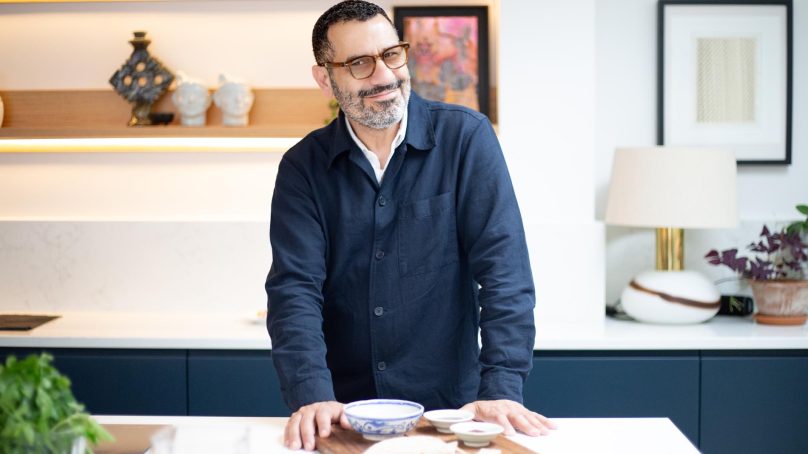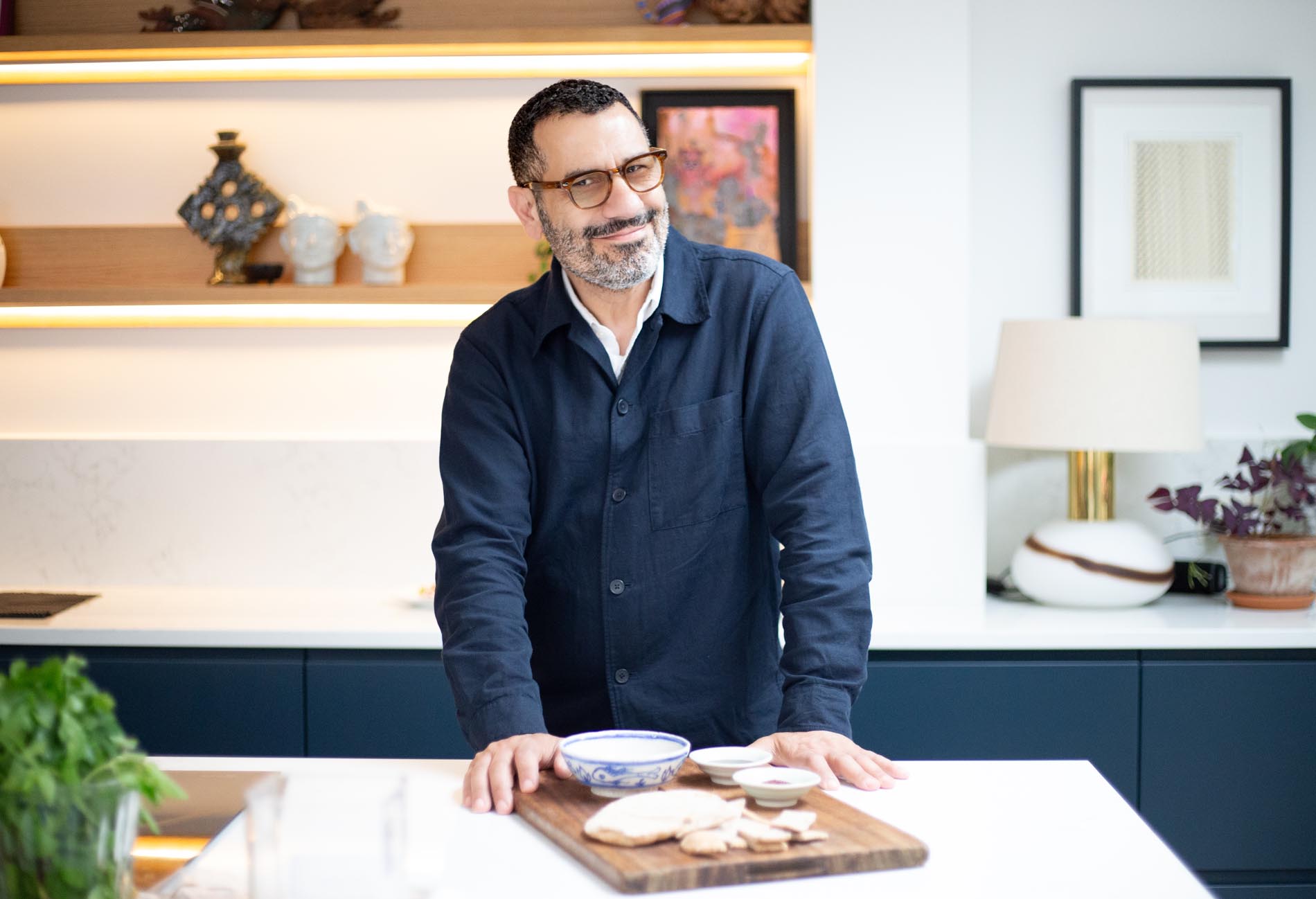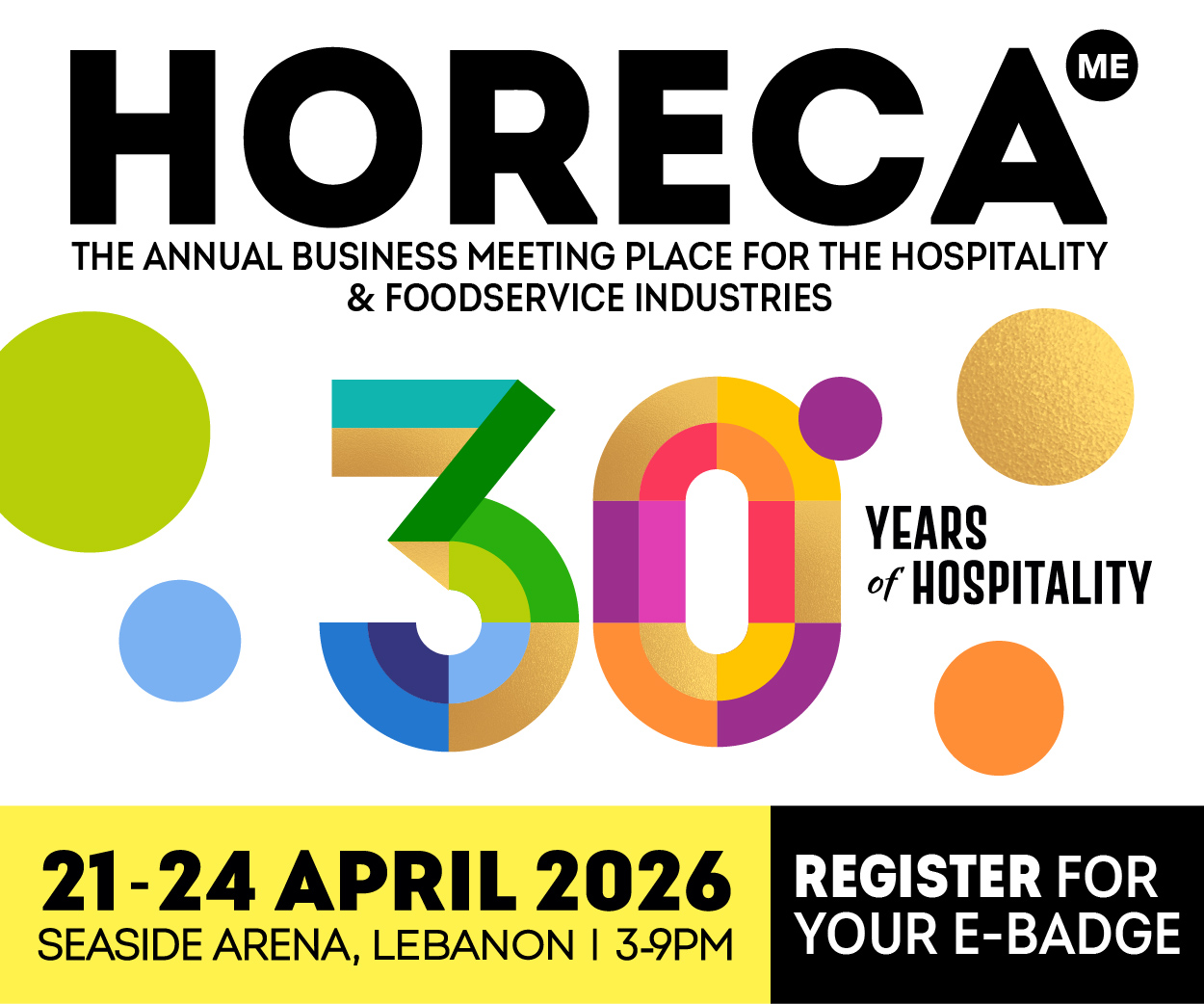A cookbook is more than a collection of recipes, it’s a personal, cultural statement that invites readers into a deeper culinary journey. Award-winning Palestinian British chef and food writer Sami Tamimi tells us about his own cookbook and the importance of sharing stories through recipes.
What can you tell us about your upbringing and relationship with food?
Born and raised in East Jerusalem, I was immersed in rich culinary traditions and developed a love for cooking early on. I began my career as a commis chef in a Jerusalem hotel, and I worked my way up. Following my move to London, I partnered with Yotam Ottolenghi to open Ottolenghi Notting Hill in 2002. Together, we co-authored bestselling cookbooks that celebrated bold flavors and reshaped modern Middle Eastern cooking worldwide. Notably, “Ottolenghi: The Cookbook” and “Jerusalem” were honored by the New York Times among the most influential cookbooks of all time. Moreover, I co-authored “Falastin” with Tara Wigley, which won Fortnum & Mason’s Cookery Book of the Year for its depth. In my solo cookbook, “Boustany: A Celebration of Vegetables from My Palestine,” I explore Palestinian traditions through colorful, plant-forward dishes.
Why are more chefs choosing to publish cookbooks?
It has become a trend, sometimes for business, sometimes for branding purposes. For me, however, it’s about highlighting the Palestinian kitchen and shedding light on the culinary heritage and stories unfolding there today. A cookbook offers a meaningful opportunity to tell a story.
What role does a cookbook play in shaping a chef’s brand today?
It’s an important tool because a cookbook brings unique attention and a new audience to your business through storytelling and recipes. Moreover, it allows you to move beyond restaurant menus and delve into the deeper why and how behind your food.
How do chefs balance personal storytelling with practical recipes in their books?
I personally do it through memories of traditional Palestinian cooking that deeply connect me to the land, flavors and seasons. These memories serve as a powerful tool that shaped my cooking career and continue to inspire the way I create today. Furthermore, they allow me to share meaningful dishes from my homeland with a wider audience, especially passionate home cooks.
Do you believe cookbooks still hold value in the digital age of online recipes and videos?
Cookbooks create a larger narrative and let you zoom in on the deeper stories that food naturally carries forward. Unlike online platforms, where SEO drives content and users search for specific dishes, cookbooks offer something more meaningful and lasting. In fact, cookbook readers often seek deeper context, insights into the history and culture behind where each recipe truly originates from. When we talk about Palestine, I feel Palestinian cuisine remains under recognized due to the trauma Palestinians have endured throughout decades of struggle and displacement. Therefore, now is the right time to discuss it and give Palestinian cuisine the credit and platform it truly deserves.











